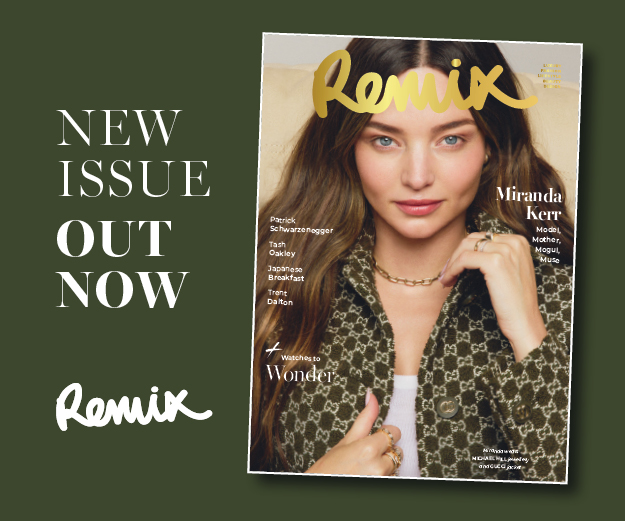Exploring Africa with Steve Boyes and Rolex
What would you do if a crocodile attacked your canoe? Or if you were chased by an Elephant? Explorer Steve Boyes experienced just this and more whilst exploring the length of the world in the form of the great rivers of Africa. Seemingly an impossible journey, this has become Steve’s every day on his Great Spine of Africa expedition, and we were lucky enough to speak to the intrepid traveller on his journey. Read about the highs, the lows, and how the iconic watch brand, Rolex, saves him from an unwanted confrontation with a group of Hippos…
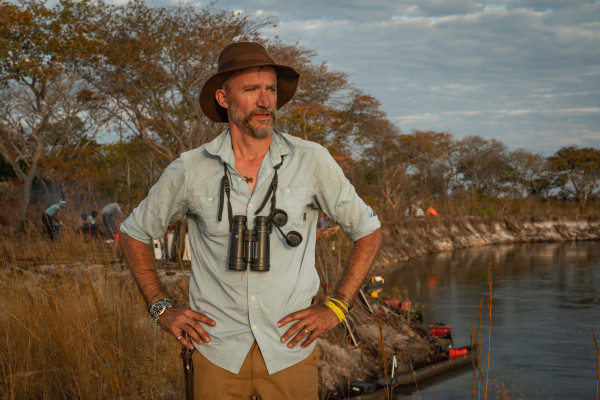
The Great Spine of Africa expeditions is such an incredible journey to embark upon - can you describe some of your absolute highlights of the trip thus far?
We are all born explorers that revel in the journey of discovery that is life on Earth. My highlights on every river expedition are the people you meet along Africa’s remotest rivers and the secrets they reveal about the remote landscapes they live in. We go to places that have never been photographed or studied. We have discovered 143 new species to science in the Angolan Highlands. One of our twelve new fish species is called “Microtenopoma Steveboyesi”. Being a 21st-century explorer is a daily highlight. There is so much that we still need to understand, appreciate and document in partnership with the local guardians that live in these wild, primordial landscapes.
What about the lower points?
Some of our river expeditions, our source navigations, can last over four months. Being away from my wife and kids for that long is incredibly difficult. Every day, I sit alone at sunset and try connect with them. Close my eyes and they are there. Every few days I call them on the satellite phone. Each night I write in my diary to read to them one day.
Reading about your expeditions and traversing areas that have never been scientifically documented, what are some moments that have left you speechless? Good or bad…
When Africa’s top geologists tell you that it’s “geologically impossible” to have waterfalls on a specific river system and you come across a massive, raging waterfall, that is quite special. Meeting remote communities living along these river systems that have had no visitors from the “outside world” for almost 50 years is a profound experience. We are scientists that use traditional craft and wisdom to stay safe. When a hippo thrusts its tusks through the hull of your dug-out canoe it is rather noteworthy and traumatic.
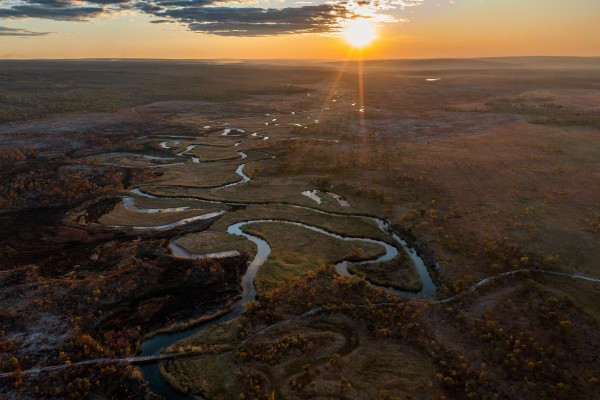
What is the goal of a project this vast?
Our aim is to support local communities and governments to better protect the sources, forests and peatlands that sustain Africa’s greatest rivers, like the Okavango, Zambezi, Congo, Nile, Chad and Niger. A sustained supply of clean freshwater is crucial to Africa’s future and these sources are typically unprotected and undeveloped, presenting a unique opportunity to support long-term resilience to the impacts of climate change on the continent. Our population is going to double in 25 years and we need to protect the ecosystems that sustain and clean our water supplies and sequester our carbon emissions as we develop.
With its continuous support of pioneers, how has it been being part of Rolex’s Perpetual Planet Initiative?
We need visionary leaders to achieve our conservation and sustainability goals this decade and into the future. If we are going to have a “perpetual planet” and take the future of our children seriously, we need programs like Rolex’s Perpetual Planet Initiative to bravely and purposefully support the emerging leaders that have an impact and are helping engineer a better future. I have worked with many partners and have found in Rolex a “forever partner”, an inspiring group of people that make decisions and act upon them. This all started with the 2019 Rolex National Geographic Explorer of the Year award and has now grown into a partnership that will support the largest expeditionary mobilisation for good in Africa’s history. We feel the urgency and are acting upon it.
Where does time play an important role on your journey and how does Rolex play a part in your daily tasks?
I basically run a marathon on the water every day, polling or paddling up to 65km, hiking hundreds of kilometres, and pushing ourselves to the limit - perpetual motion. Rolex wakes me up and times rest periods during the day. We need to be out of the water by 4pm when the hippos become active in the channels that we use, and my ever-present Rolex Explorer II makes sure we are in a position to do that. Over months and months in some of the harshest conditions you can imagine, you need quality, durability and reliability. I have broken many watches on expeditions, but never my Explorer II.
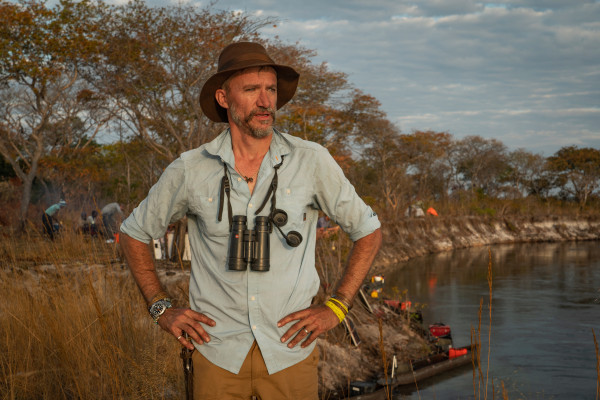
I’m sure a journey like this has brought a lot of emotion along the way, is there anything you’ve discovered about the world (or even yourself) from your expeditions through the spine of Africa?
Magic still exists in “supernature”. We are these last wildernesses every one of us. We take artists, scientists and filmmakers that have never been in the wild into the remotest, wildest landscapes in Africa. Every single person we have taken along has found an inner strength and vitality they didn’t know in themselves. As human beings, our only superpower is being in nature.
Africa is home to some of the most incredible animals on our planet, but also some of the most dangerous! Have you had any crazy encounters on your travels?
While bathing in the moonlight using a small bucket of water, an elephant started chasing me around. I spent almost 2 hours naked, freezing cold, creeping around in the shadows hiding from him. I eventually got to my tent. He was waiting for me in the morning… I have woken up sleeping elephants, walked into mating lions, and had a 5m crocodile try to capsize my dug-out canoe. I have been so overwhelmed by insects that you nearly lose your mind. The wilderness is our greatest teacher.
The importance of ‘reconnecting’ is a very heavy theme surrounding you and your expeditions, is this something that contributes to your passion for the wilderness?
Presence and connection are what keep us alive. The lions, hippos, elephants and crocodiles bring a landscape to life, holding you in the present moment, and connecting you to all life around you. You listen to every bird and animal. You listen to the silence. In the wilderness, you learn to depend on each other and all life around you.
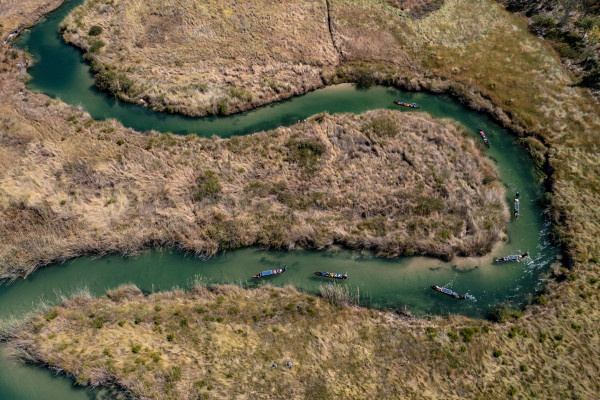
Talk to us about the conservation of the African wetlands and their wildlife - how can make more of an impact?
First, we need to establish detailed hydrological, ecological and socio-economic baselines by exploring the full length of all of Africa’s most important rivers this decade. Along the way, we will find conservation opportunities and ecosystem threats. The opportunities must result in community-driven systems of protection. The problems must be addressed by repeating our scientific baselines that benchmark limits of acceptable change to inform policy changes and investment in the mitigation of these threats, whether they be plastic pollution, water offtake, toxic waste or overfishing.
Is there anything else you want to talk about today?
I love talking about new ideas and thoughts most days. My Instagram profile is @drsteveboyes - I use it as my journal.


